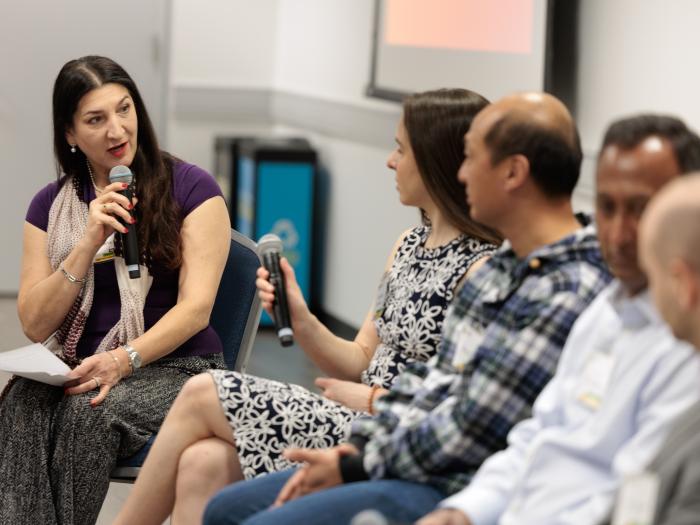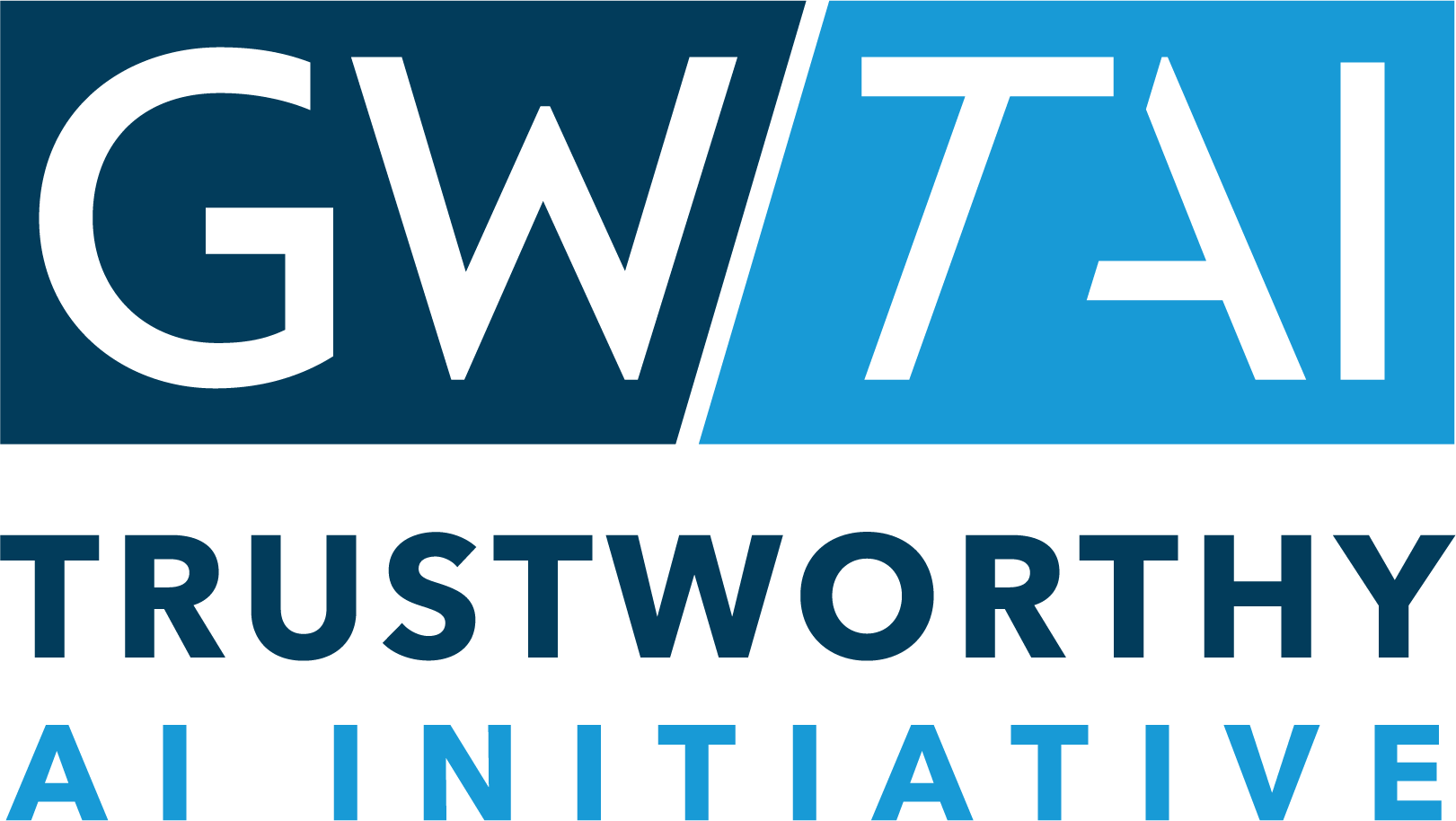GW Trustworthy AI Initiative
Upcoming Events
GW TAI is leading the way in trustworthy AI in systems and for society.
Latest News

GW Engineering's New AI Academy Helps Faculty Build AI Fluency
January 26, 2026
GW Engineering Professor Lorena A. Barba has launched the GW Engineering AI Academy to support faculty in developing AI capabilities that can be applied directly to their teaching and research.

GW TAI’s Oxbridge Lunches Foster Interdisciplinary Discourse and Collaboration
January 9, 2026
In the fall, GW TAI hosted two “Oxbridge” lunches, inspired by the tradition of intellectual discourse among scholars from wildly different disciplines.

GW School of Business Appoints Its First Chief AI Officer
November 24, 2025
GW School of Business and GW TAI Professor Patrick Hall has been appointed GWSB's first Chief AI Officer.







